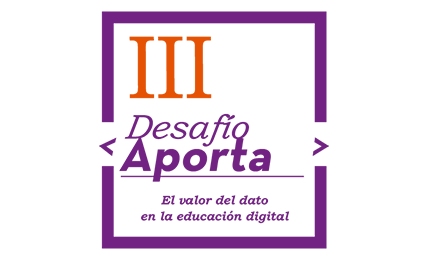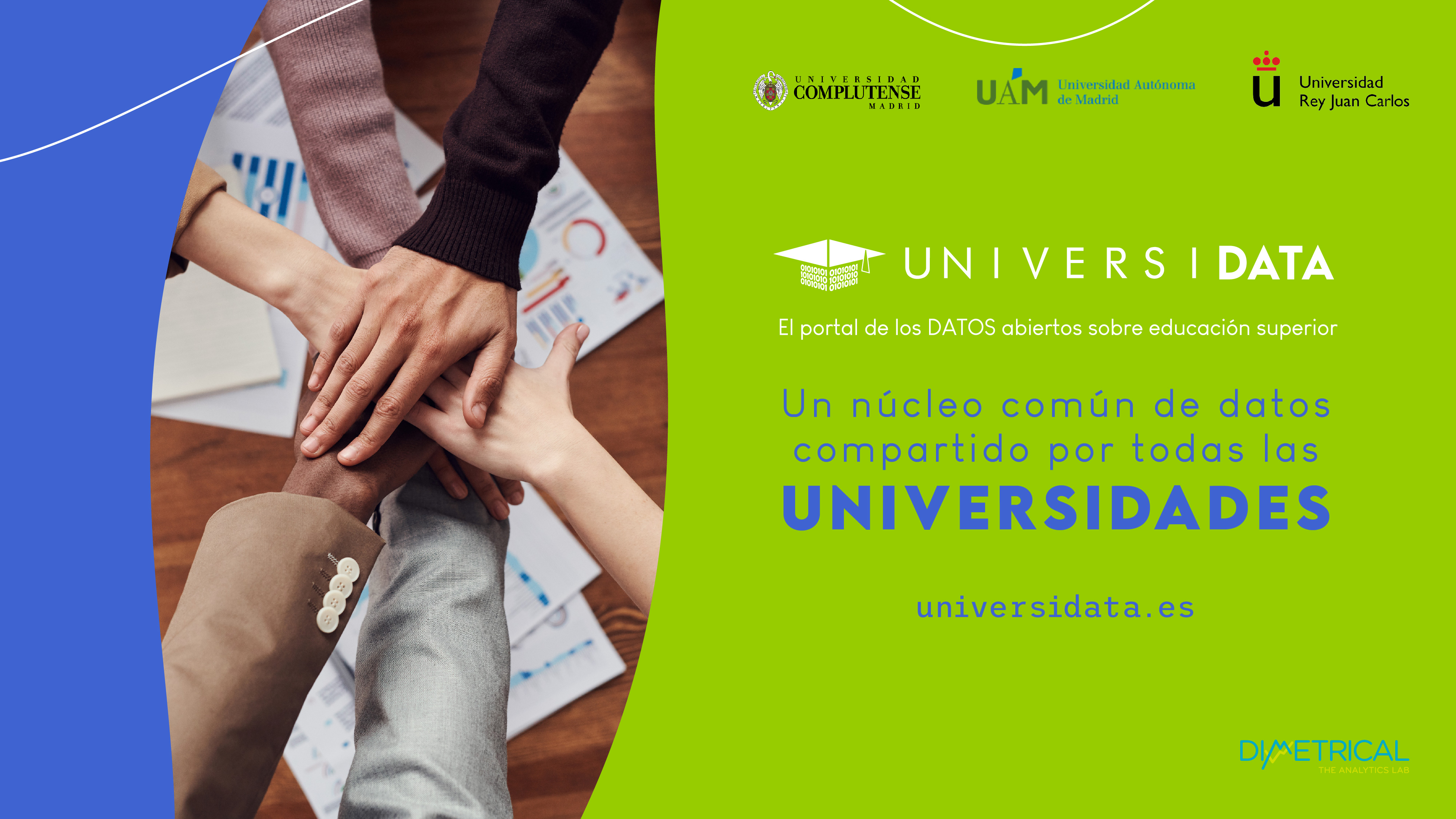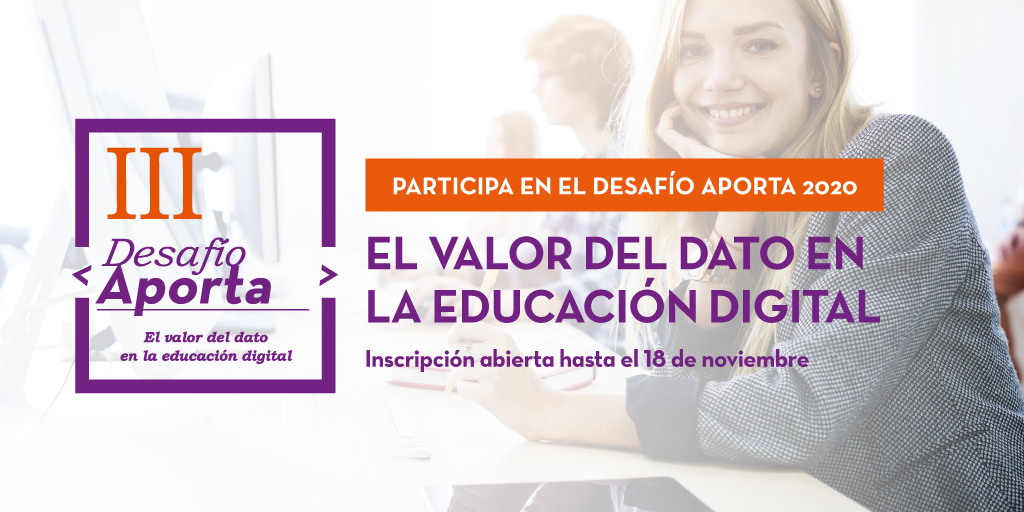UniversiData-LAB, MIP Project and EducaWood win the III Aporta Challenge
Fecha de la noticia: 08-07-2021
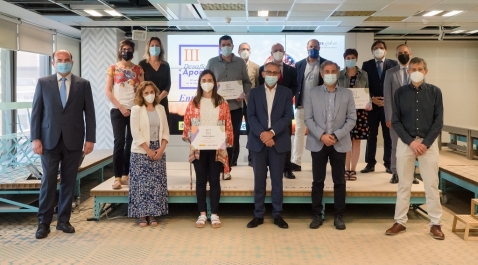
After months of work, the 3rd Aporta Challenge has come to an end. Under the slogan "the value of data in digital education", this year's competition sought solutions that used open data to drive improvements in the education sector.
The competition, organised by the Aporta Initiative, launched by Red.es together with the Secretary of State for Digitalisation and Artificial Intelligence, began in October 2020, with a first phase consisting of an ideas competition. After the jury's assessment, 10 finalists were chosen and have had three months to transform their ideas into a prototype. These prototypes were presented on 22 June in an online session.
10 proposals that stand out for their quality
The 10 papers presented are a great example of the power of open data to transform the education sector, improving its effectiveness and efficiency. The need for universal access to knowledge through inclusive and quality education has become even more evident in the current pandemic context. Open data can help to meet this challenge. Open data can be analysed and used to shape solutions that help to improve the student experience in the learning process, for example through personalisation of education, identification of behavioural problems or informed decision-making, among other issues.
All the entries were of a high quality, reflecting the efforts of all the finalist teams. The jury, made up of experts representing companies, public administrations and organisations linked to the digital economy and the academic world, had a difficult time choosing the three winners. In the end, the three winners were UniversiDATA-Lab, MIP Project and EducaWood, who received prizes of €4,000, €3,000 and €2,000 respectively.
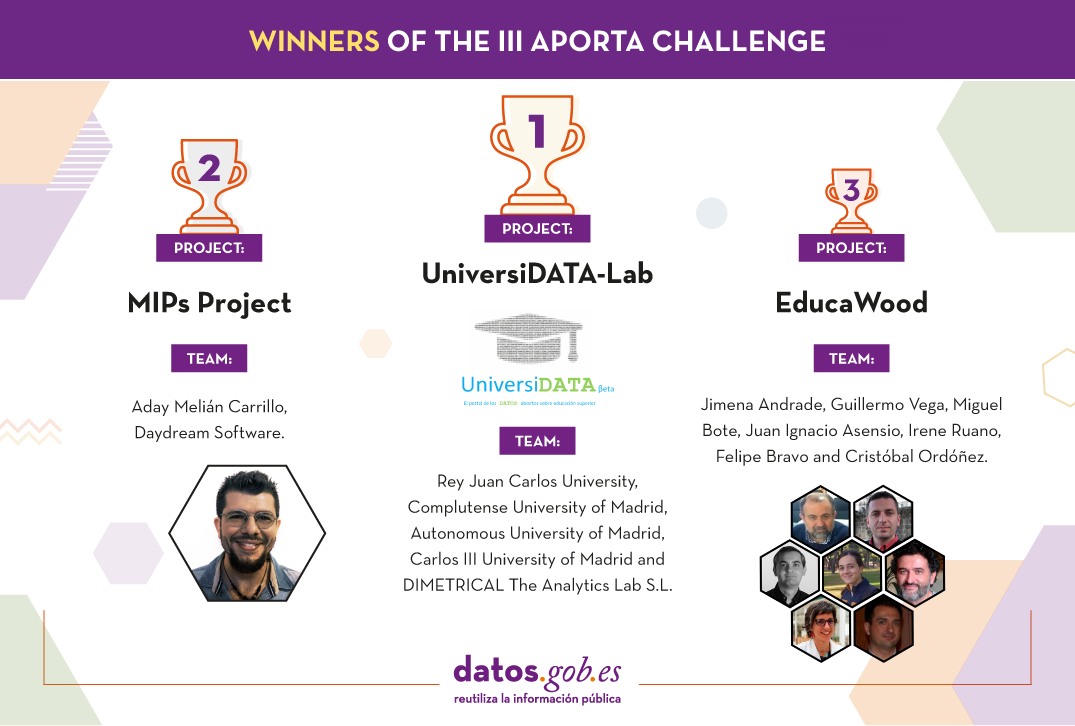
First prize: UniversiDATA-Lab
-
Team: Rey Juan Carlos University, Complutense University of Madrid, Autonomous University of Madrid, Carlos III University of Madrid and DIMETRICAL The Analytics Lab S.L.
The first prize went to UniversiData-Lab, a public portal for the advanced and automatic analysis of datasets published by universities. It is a complementary project to UniversiData: while the objective of UniversiDATA is to facilitate access to high quality university datasets with standard formats and criteria, the objective of UniversiDATA-Lab is to enhance the value of these datasets, carrying out advanced and automatic analysis of them, taking advantage of the homogeneity of the content.
UniversiDATA-Lab offers a catalogue of applications created thanks to the application of advanced analysis and visualisation techniques, carried out in R language. In the online session they showed the analysis of interurban commuting, the analysis of CO2 generated by student commuting and the analysis of gender differences in the different university branches.
These analyses can be instrumental in helping universities to make decisions related to administration and management, with major benefits for the environment, the economy and society.
Screenshots of UniversiDATA-Lab
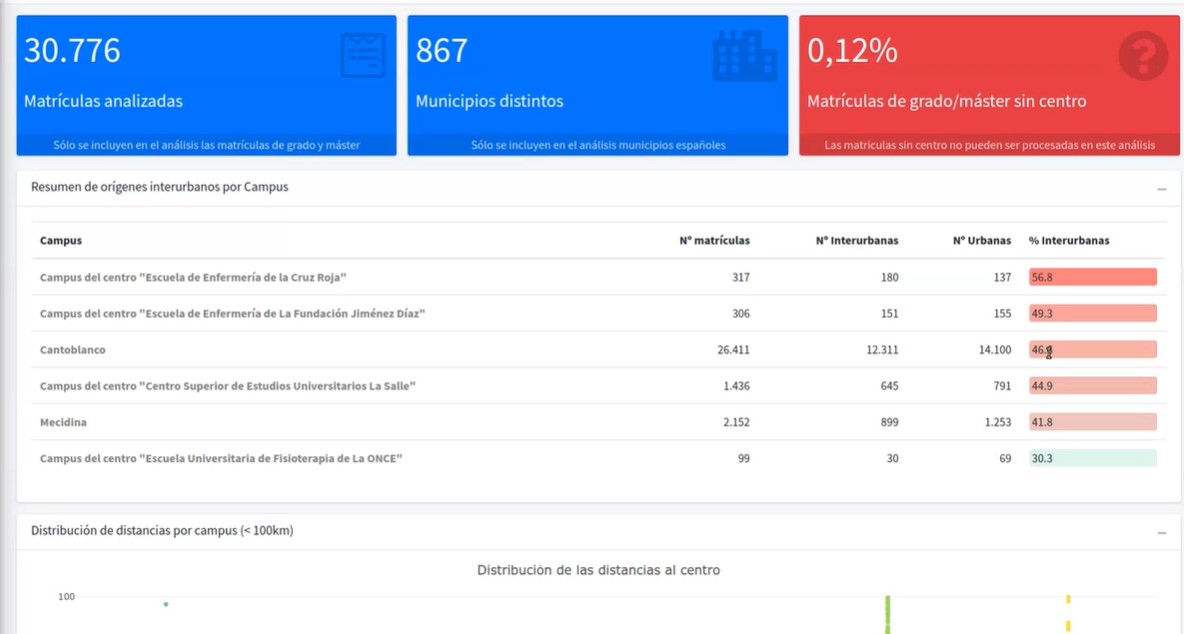
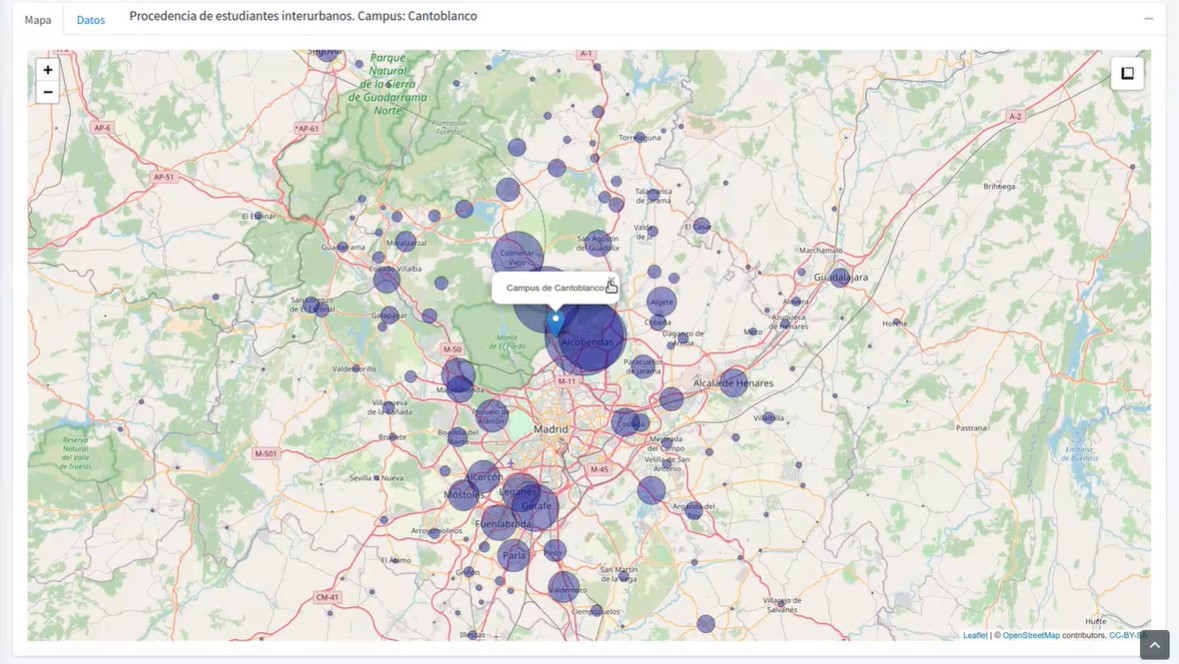
Second prize: MIP Project
- Team: Aday Melián Carrillo, Daydream Software.
MIP Project, the second prize winner, is an online service where any user can register and start creating MIPs (Marked Information Pictures). A MIP is an information format consisting of a series of interactive layers over static images that facilitate the retention of information and the identification of elements.
The prototype includes a Python converter from GeoJSON open data to the format needed to develop interactive atlases. It also offers a public cloud of freely accessible MIPs for consultation, study or independent learning.
Thanks to this tool, teachers can create MIPs quickly and easily by manually drawing regions of interest on any image imported through the web. A more enjoyable way to educate and to attract students' attention more easily.
Screenshots of MIP Project
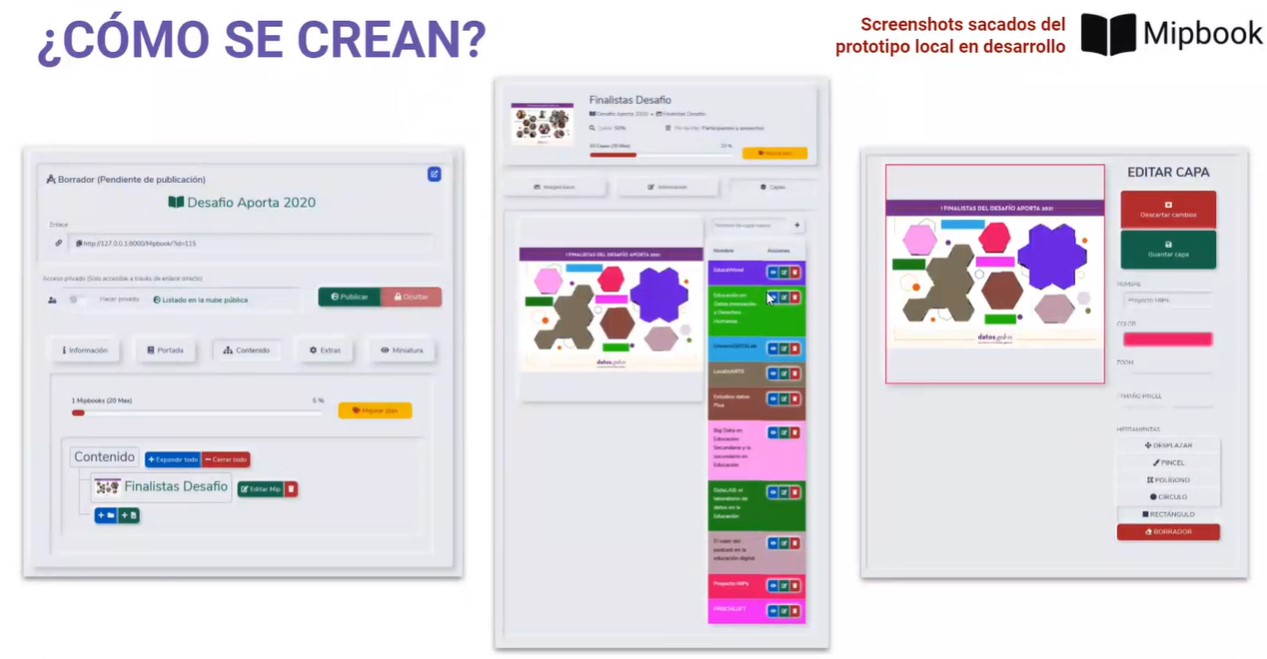
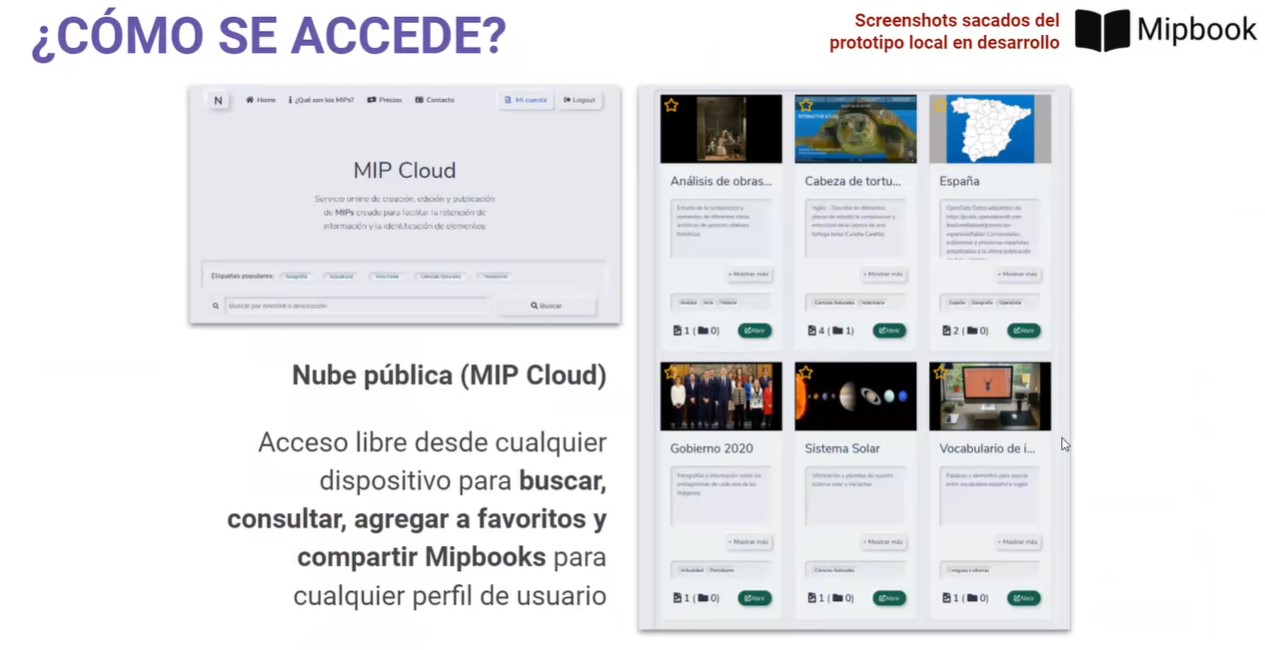
Third prize EducaWood
-
Team: Jimena Andrade, Guillermo Vega, Miguel Bote, Juan Ignacio Asensio, Irene Ruano, Felipe Bravo and Cristóbal Ordóñez.
EducaWood is a socio-semantic web portal that allows you to explore the forest information of an area of Spanish territory and enrich it with tree annotations. Its aim is to promote environmental learning activities, one of the main aspects of UNESCO's "Education for Sustainable Development Goals", which is part of the Spanish Government's Agenda 2030.
Thanks to the use of EducaWood, teachers can propose activities that students can carry out either face-to-face or online (through virtual field visits). In the face-to-face modality, students visit natural areas and make annotations of trees, such as location and identification of species, measurements, microhabitats, photos, etc. These annotations become available to the whole community as open data, thus enabling the application to be used remotely. These data are also enriched with other sources such as the Spanish Forest Map, the National Forest Inventory, GeoNames or DBPedia.
EducaWood helps students to learn more about their environment, while promoting ecological awareness.
Screenshots of Educawood
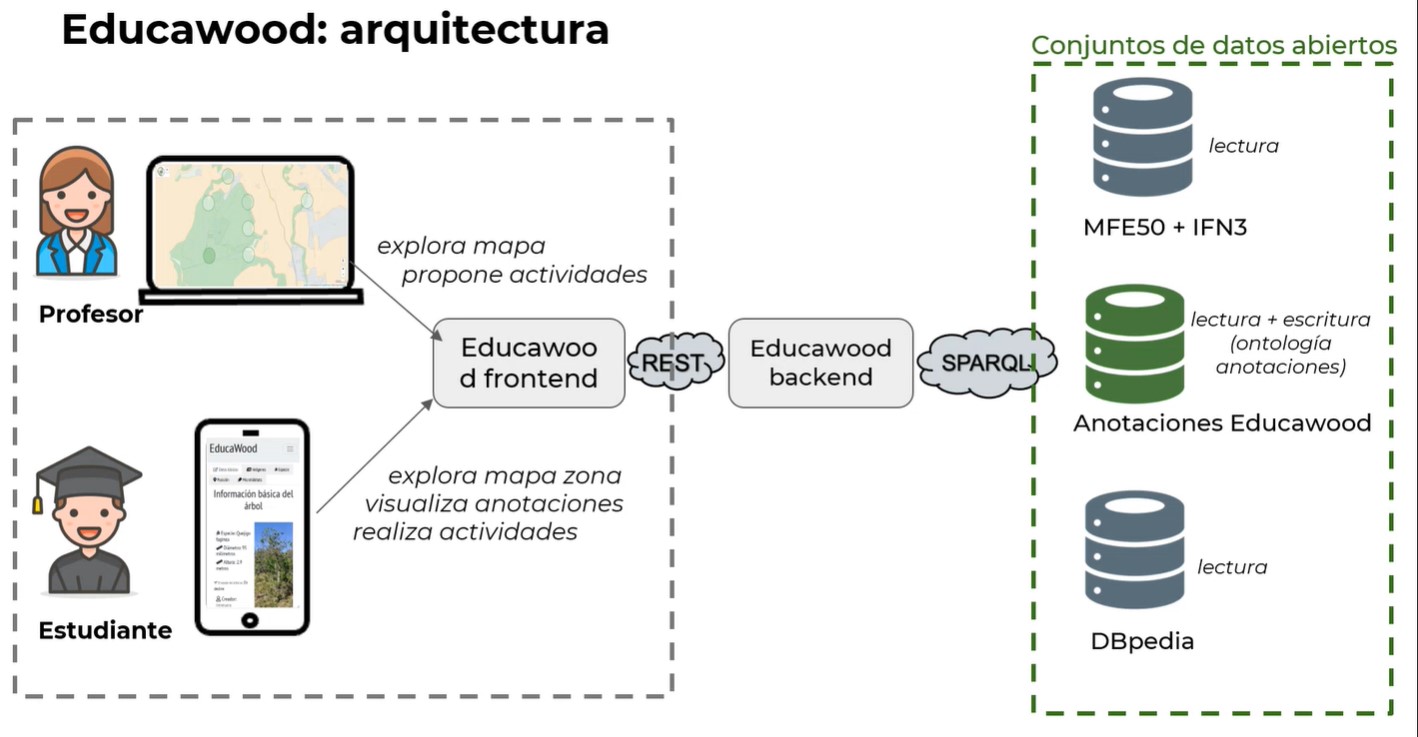
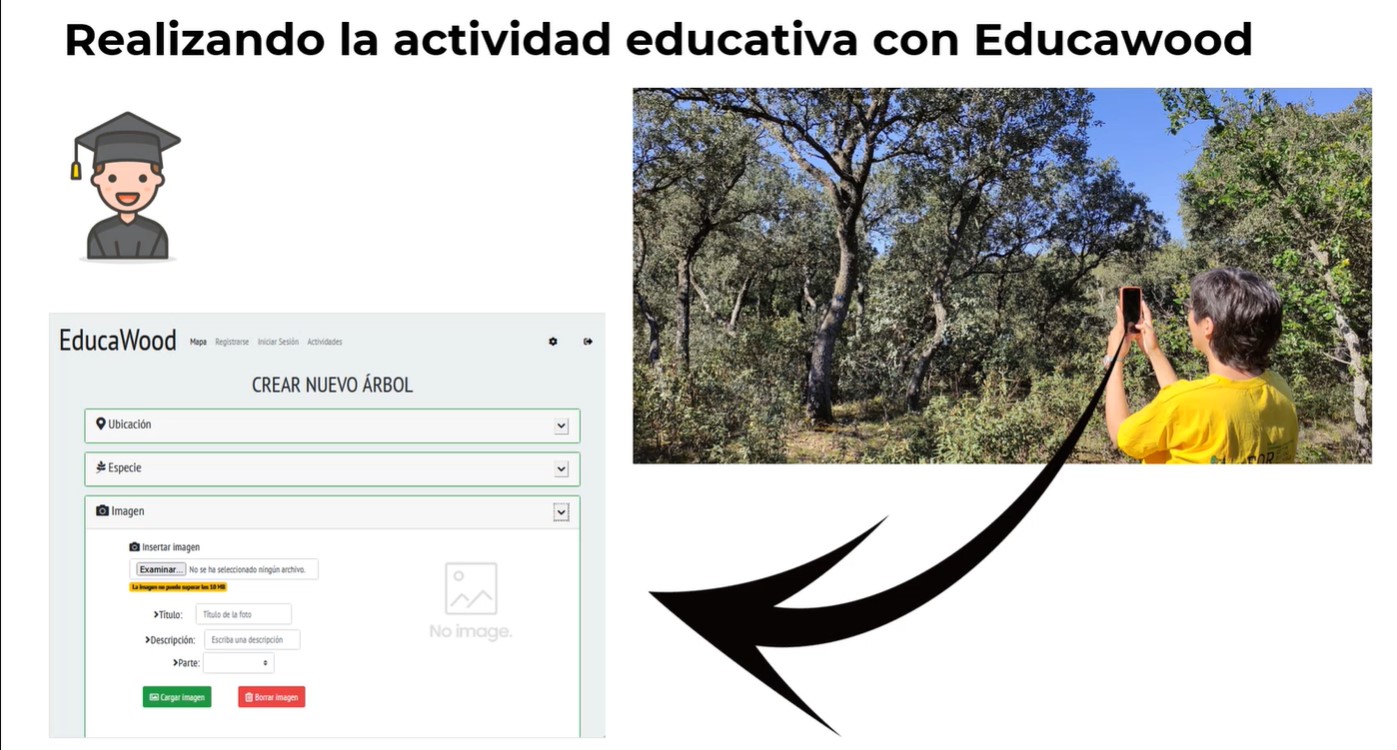
Alberto Martínez Lacambra, Director General of Red.es, presents the awards
The awards to the three winners were announced on 8 July at a ceremony held at Red.es headquarters.
The three awards were announced by Alberto Martínez Lacambra, Director General of Red.es, who highlighted education as a key element in the evolution of a society marked by the pandemic, as well as the need to work to reduce the digital and social divide that still exists. He thanked all the participants for their participation, highlighting the quality of their work.
The event was attended by several members of the jury, who were able to talk to the three winning teams.
In the following video you can see how the event took place. Photos are also available on our Flickr account.
At datos.gob.es we are already working to shape the IV Aporta Challenge, which we hope to announce in the coming months.



